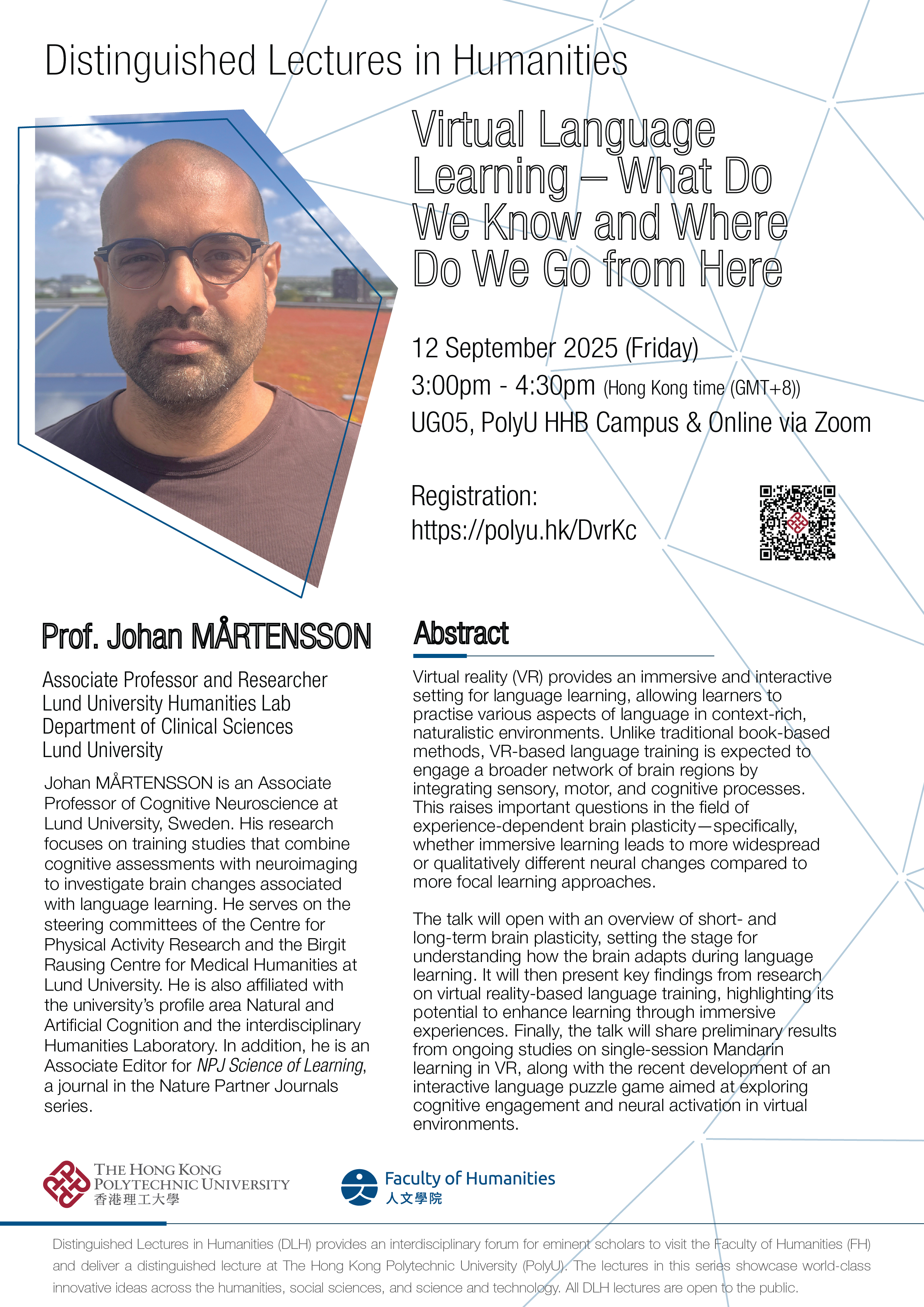Distinguished Lectures in Humanities: Virtual Language Learning – What Do We Know and Where Do We Go from Here
Distinguished Lectures in Humanities

-
Date
12 Sep 2025
-
Organiser
Faculty of Humanities
-
Time
15:00 - 16:30
-
Venue
UG05, PolyU HHB Campus & Zoom
Remarks
The talk will be conducted in English.
Summary
Abstract
Virtual reality (VR) provides an immersive and interactive setting for language learning, allowing learners to practise various aspects of language in context-rich, naturalistic environments. Unlike traditional book-based methods, VR-based language training is expected to engage a broader network of brain regions by integrating sensory, motor, and cognitive processes. This raises important questions in the field of experience-dependent brain plasticity—specifically, whether immersive learning leads to more widespread or qualitatively different neural changes compared to more focal learning approaches.
The talk will open with an overview of short- and long-term brain plasticity, setting the stage for understanding how the brain adapts during language learning. It will then present key findings from research on virtual reality-based language training, highlighting its potential to enhance learning through immersive experiences. Finally, the talk will share preliminary results from ongoing studies on single-session Mandarin learning in VR, along with the recent development of an interactive language puzzle game aimed at exploring cognitive engagement and neural activation in virtual environments.
About the speaker
Johan MÅRTENSSON is an Associate Professor of Cognitive Neuroscience at Lund University, Sweden. His research focuses on training studies that combine cognitive assessments with neuroimaging to investigate brain changes associated with language learning. He serves on the steering committees of the Centre for Physical Activity Research and the Birgit Rausing Centre for Medical Humanities at Lund University. He is also affiliated with the university’s profile area Natural and Artificial Cognition and the interdisciplinary Humanities Laboratory. In addition, he is an Associate Editor for NPJ Science of Learning, a journal in the Nature Partner Journals series.




